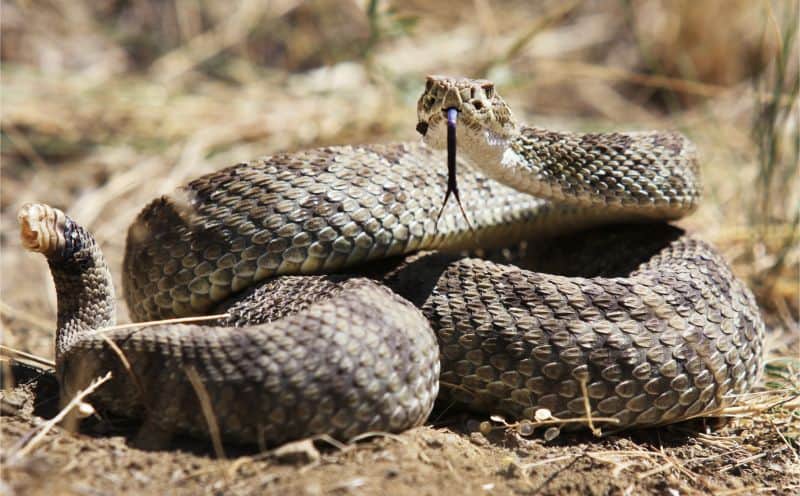The Rattlesnake Vaccine: Should Your Pet be Protected?

Rattlesnakes are nothing to sneeze at. If you’ve lived in California long enough, you have probably either encountered a snake or know someone who has. Dogs are at particular risk for rattlesnake bites due to investigating grasses, shrubs, and other prime rattlesnake habitat with their noses.
Each year, the staff at Bowman Veterinary Hospital treats dogs that have been bitten by rattlesnakes. Protecting your pet means understanding their risks, preventing encounters whenever possible, and working with us to determine if the rattlesnake vaccine is appropriate for your pet.
Is the Rattlesnake Vaccine Right for Your Dog?
In general, dogs with a high likelihood of encountering rattlesnakes should be vaccinated. These include:
- Dogs that regularly accompany their owners while hiking, camping, or hunting, or that generally spend a lot of time outdoors.
- Dogs with a high prey drive who may not heed their owner’s warning of a snake.
- Smaller dogs (they may be less able to deal with the effects of a bite).
- Puppies over 4 months old (puppies are curious and may not be fully trained yet).
Puppies under 4 months of age cannot be vaccinated against rattlesnake venom, so be sure to take extra precautions when it comes to time outdoors. Always supervise them while outdoors, and keep them away from areas where snakes may be hiding, such as tall grass, brush, or woodpiles.
Understanding the Rattlesnake Vaccine
Make sure you understand the basics of the rattlesnake vaccine before taking the plunge:
- The rattlesnake vaccine works by stimulating your pet’s immune system to create antibodies to the proteins in venom.
- Although vaccinated pets still need emergency medical attention if they’ve been bitten, having the rattlesnake vaccine can significantly improve their chances for a full recovery.
- The vaccine can be administered as early as 4 months of age.
- Your pet will need a booster about one month after the initial shot.
- The rattlesnake vaccine should be given annually, ideally about one month before the start of snake season.
Having your pet vaccinated against rattlesnake venom is a great compliment to other precautionary measures, such as keeping dogs leashed and on-trail at all times, not allowing them to investigate wildlife, and snake-proofing your property whenever possible.
For more information, or to set up an appointment for your pet, don’t hesitate to contact our staff.


